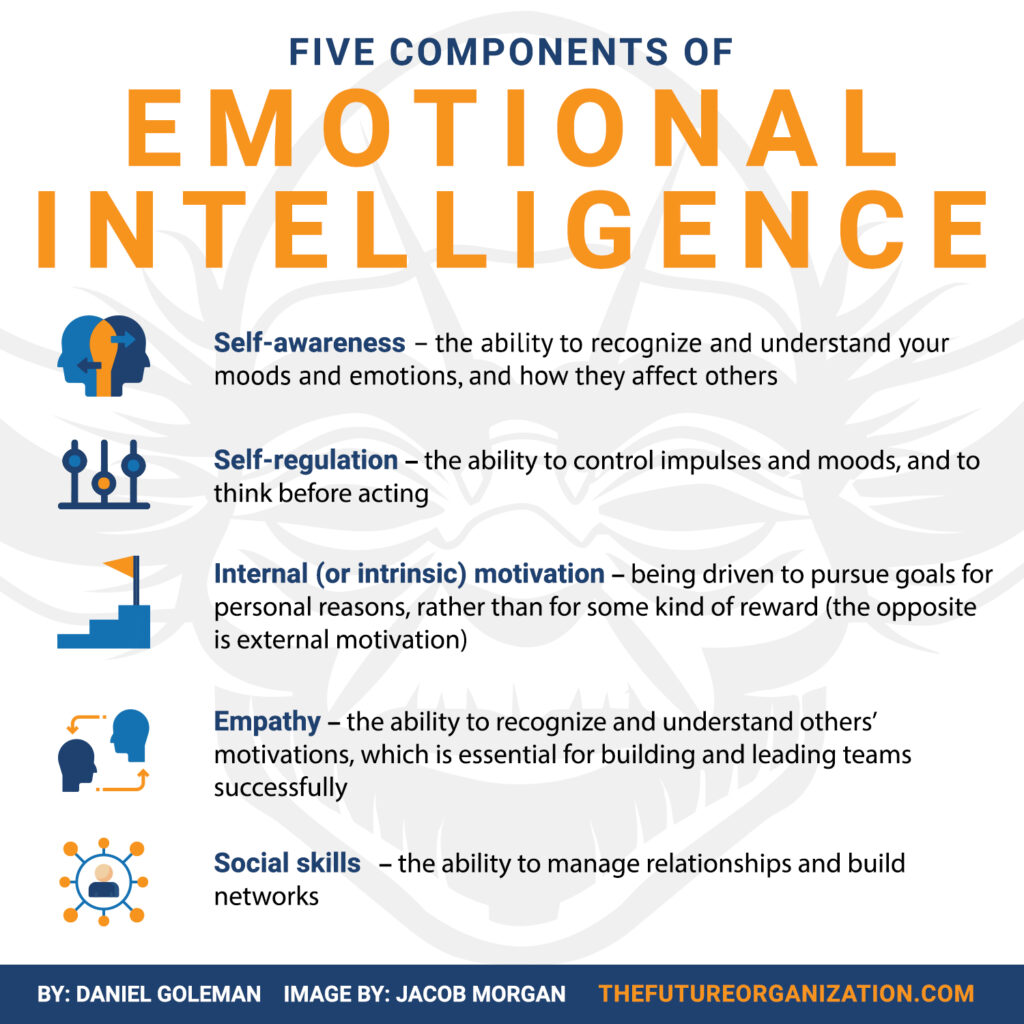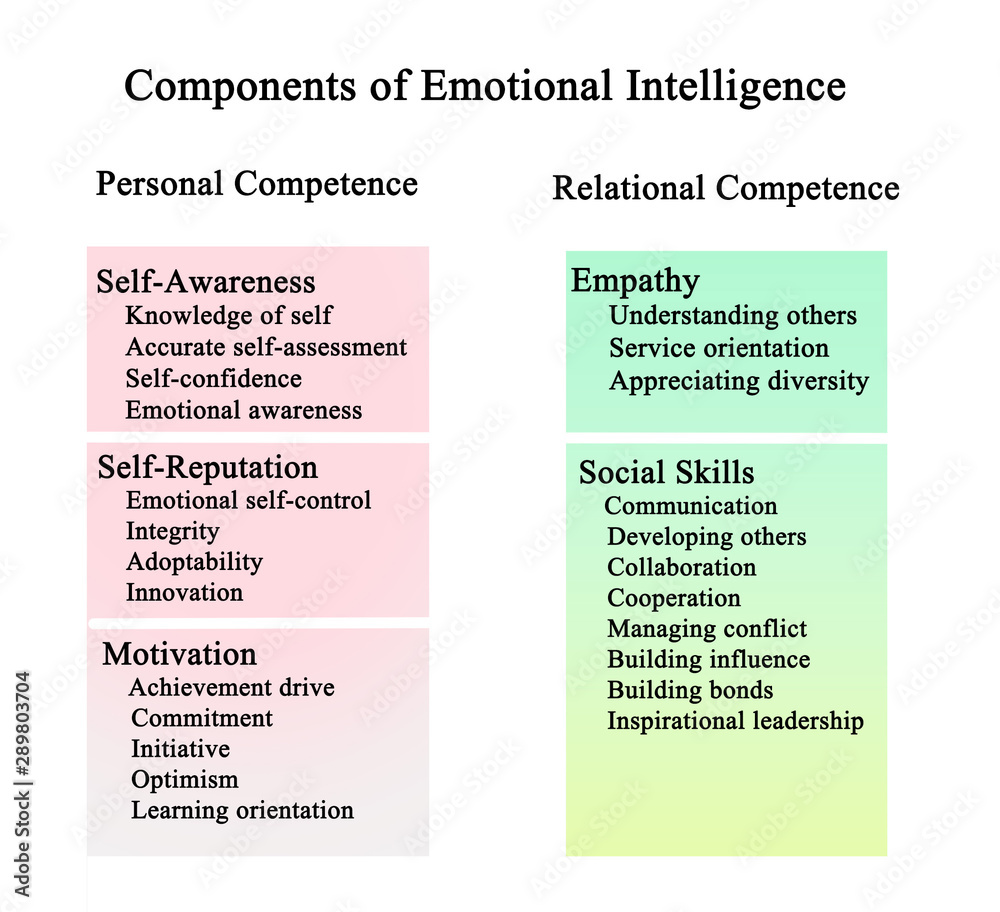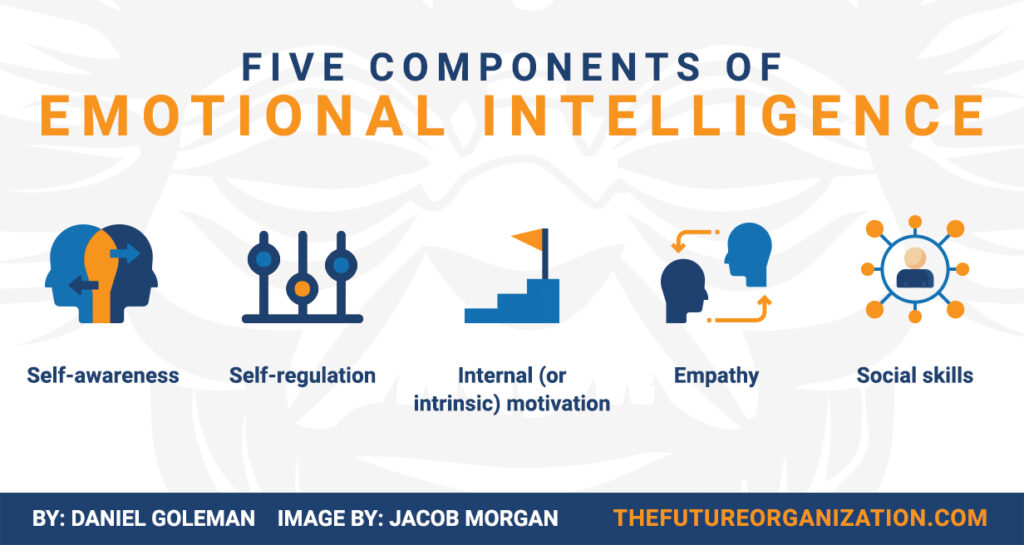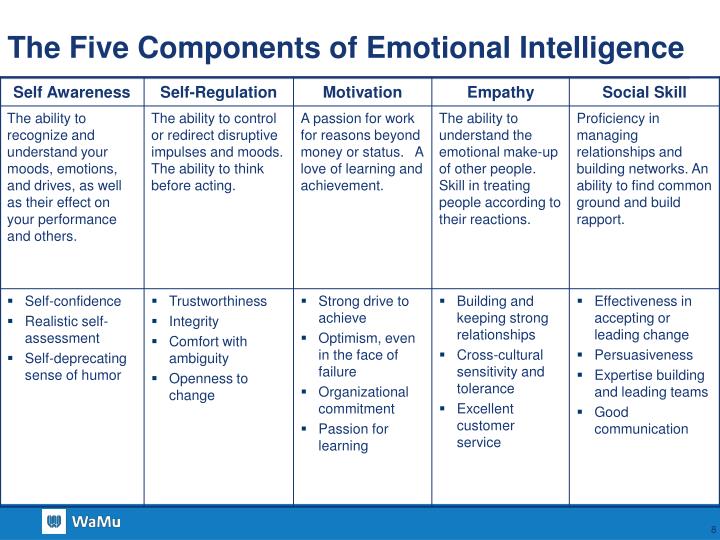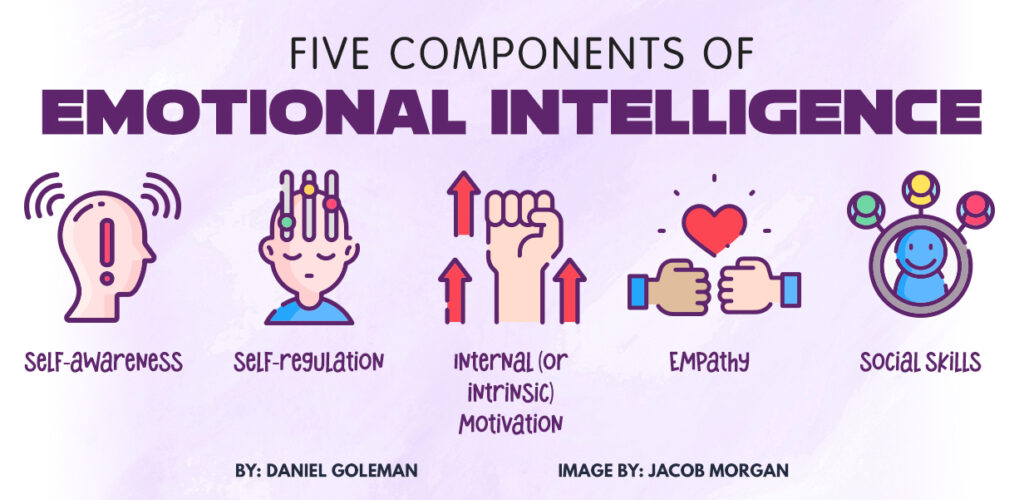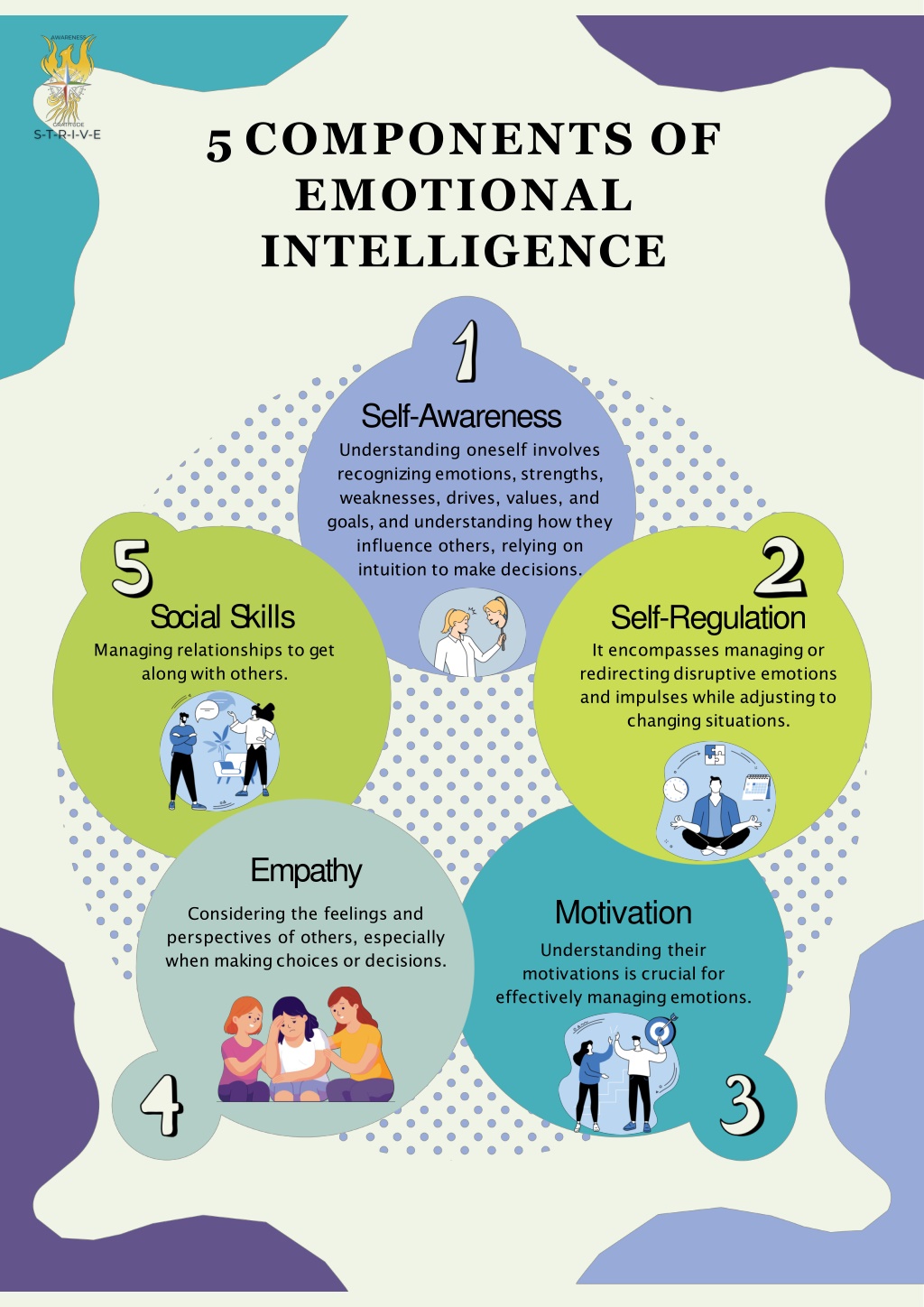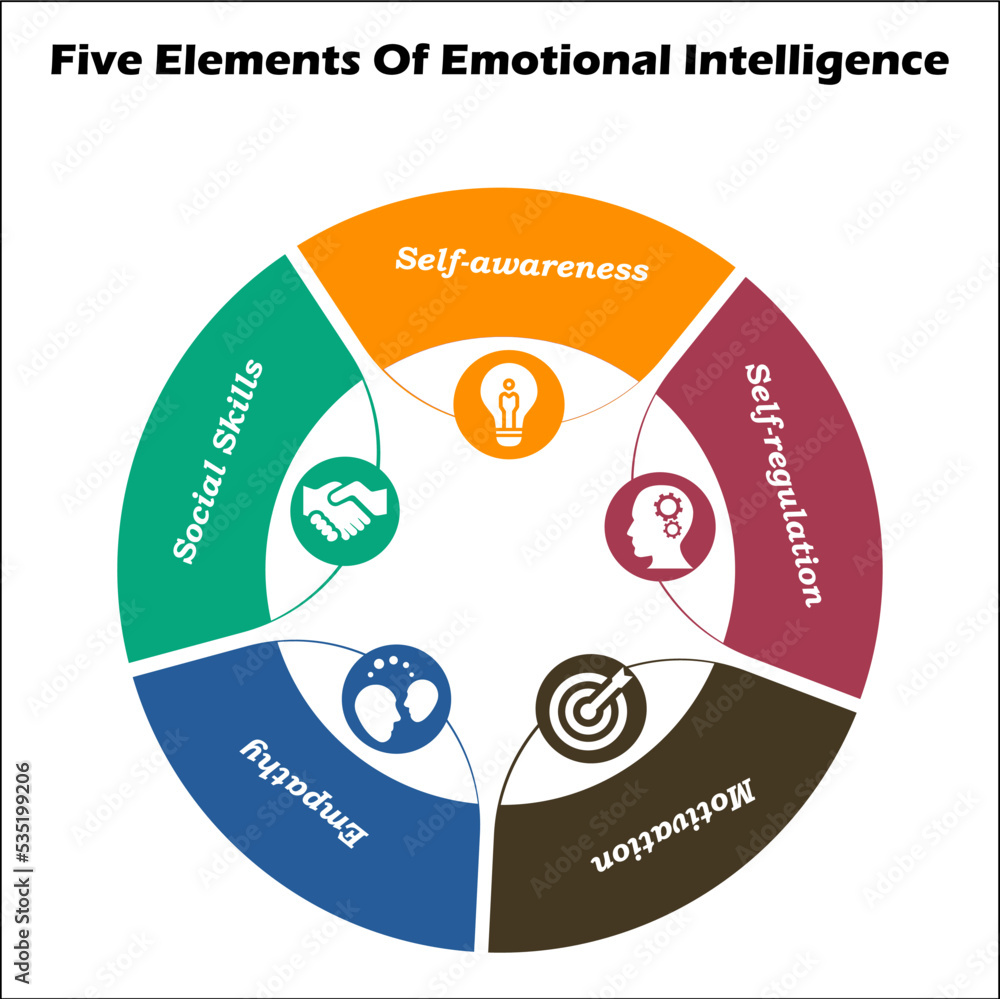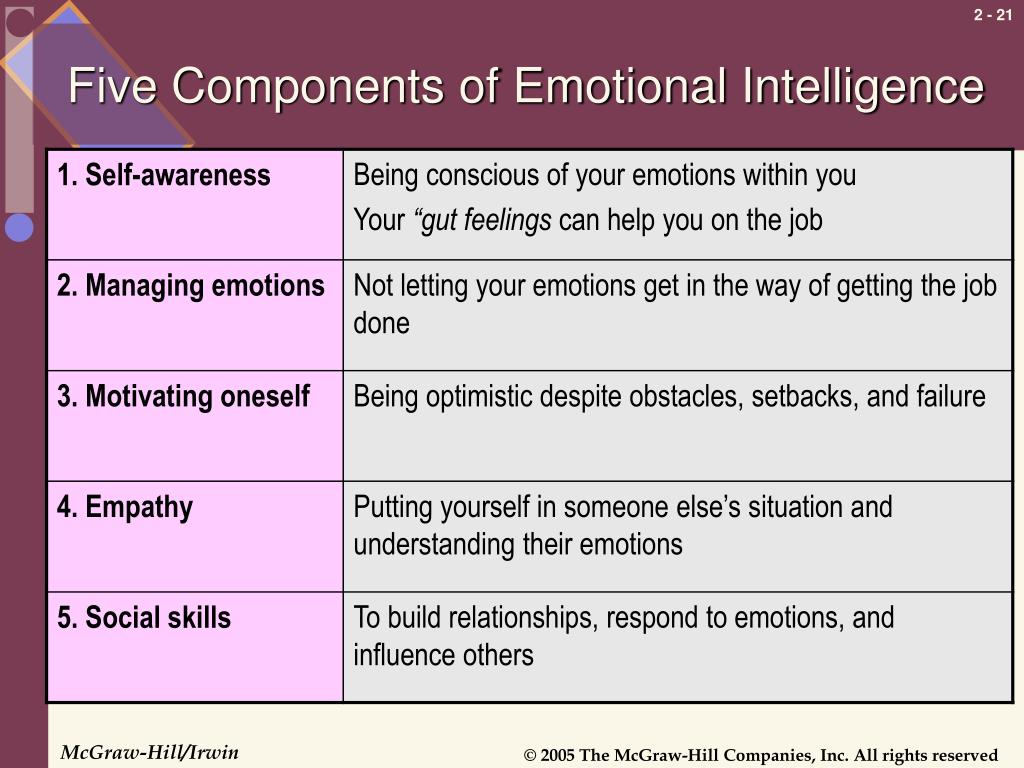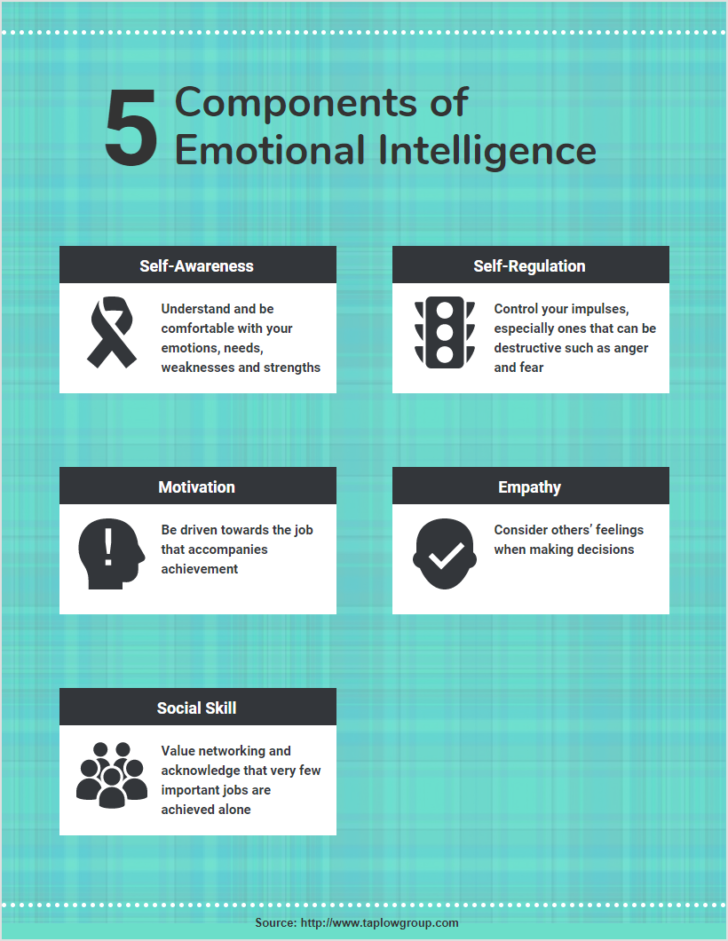Five Aspects Of Emotional Intelligence
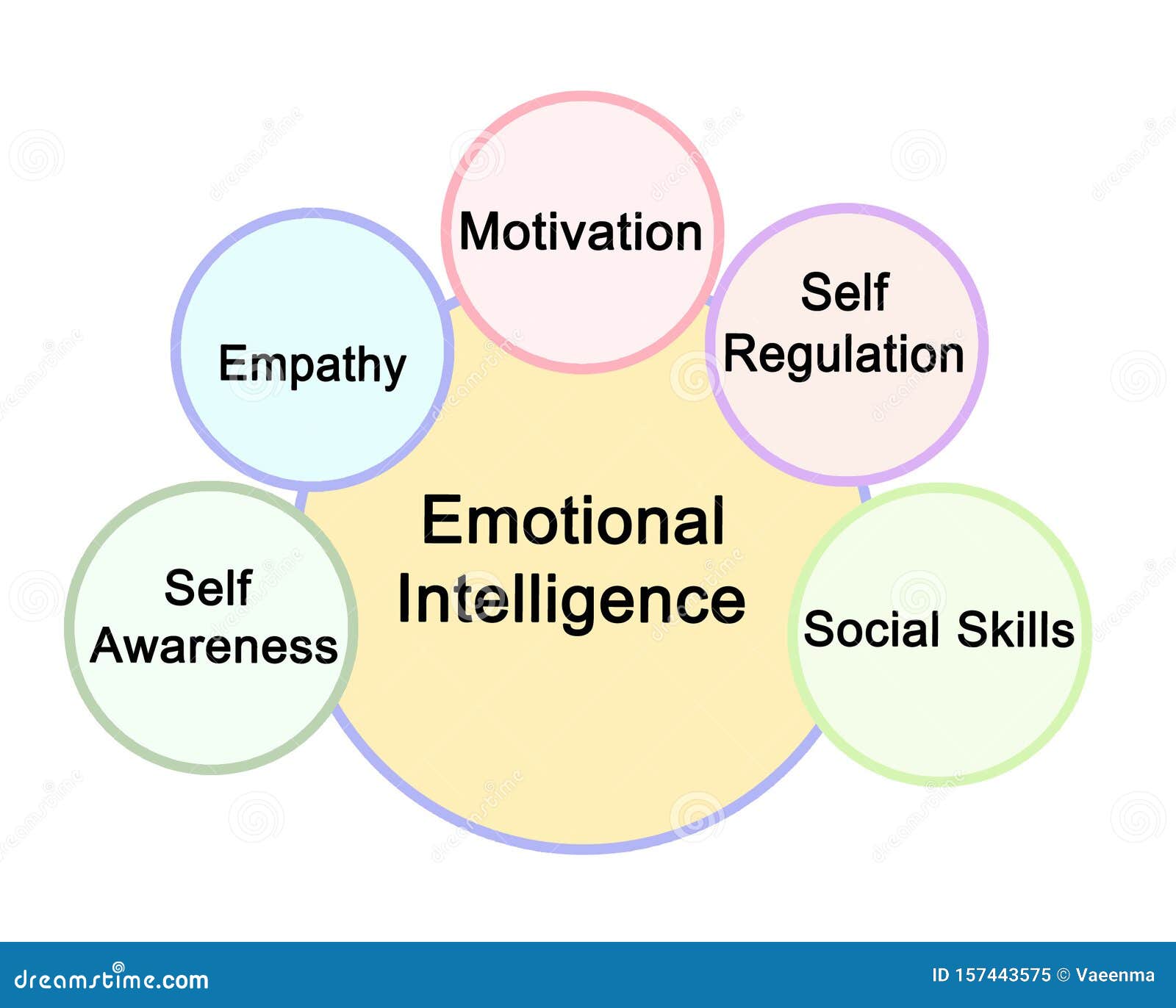
In a world increasingly driven by automation and artificial intelligence, the human element remains paramount. While technical skills are crucial, the ability to understand and manage emotions – both our own and those of others – is rapidly becoming the defining factor in personal and professional success. A growing body of research highlights the significance of emotional intelligence, or EI, as a key predictor of performance, leadership effectiveness, and overall well-being.
This article delves into the five core components of emotional intelligence, drawing upon established psychological frameworks and real-world applications. Understanding these aspects can empower individuals to enhance their EI and cultivate stronger, more meaningful relationships, both at work and in their personal lives. We will explore self-awareness, self-regulation, motivation, empathy, and social skills, providing actionable insights for development in each area.
Understanding the Five Pillars of Emotional Intelligence
The widely recognized model of EI, popularized by psychologist Daniel Goleman, identifies five crucial components. These components are not independent but rather interconnected, each influencing and reinforcing the others. Mastery of these aspects can lead to improved communication, conflict resolution, and team collaboration.
Self-Awareness: Knowing Your Emotions
Self-awareness is the foundation of emotional intelligence. It involves recognizing and understanding your own emotions, strengths, weaknesses, values, and motivations. Individuals with high self-awareness are attuned to their feelings and how they impact their thoughts and behavior.
A crucial aspect of self-awareness is the ability to accurately assess one's own strengths and weaknesses. This understanding allows individuals to leverage their talents and seek support in areas where they need improvement. Furthermore, being aware of one's values and motivations ensures that actions are aligned with personal principles, leading to greater fulfillment and authenticity.
Self-Regulation: Managing Your Emotions
Self-regulation, also known as self-management, is the ability to control and manage your emotions effectively. This includes handling impulsive feelings, managing stress, and adapting to changing circumstances. Individuals with strong self-regulation skills remain composed and rational, even in challenging situations.
According to research by Yale Center for Emotional Intelligence, techniques like mindfulness and cognitive reappraisal can significantly improve self-regulation. Learning to reframe negative thoughts and practice emotional detachment can prevent emotional outbursts and promote constructive problem-solving. Self-regulation also involves taking responsibility for one's actions and holding oneself accountable for mistakes.
Motivation: Driving Yourself Towards Goals
Motivation, in the context of EI, refers to the internal drive to achieve goals and pursue excellence. Emotionally intelligent individuals are driven by intrinsic factors, such as personal satisfaction and a desire to make a difference, rather than solely by external rewards. They are resilient, optimistic, and committed to their objectives.
"A focus on intrinsic motivation is vital for long-term success," says Dr. Richard Boyatzis, a leading EI researcher. Setting realistic goals, celebrating small wins, and maintaining a positive attitude are key strategies for fostering motivation. Cultivating a growth mindset, which emphasizes learning and development over innate ability, can further enhance resilience and drive.
Empathy: Understanding Others' Emotions
Empathy is the ability to understand and share the feelings of others. It involves putting yourself in another person's shoes and appreciating their perspective, even if you don't necessarily agree with them. Empathetic individuals are skilled at building rapport, fostering trust, and creating supportive relationships.
According to a study by the University of California, Berkeley's Greater Good Science Center, empathy is not simply a personality trait but a skill that can be developed. Active listening, perspective-taking, and paying attention to nonverbal cues are essential components of empathy. Furthermore, practicing compassion and showing genuine concern for others' well-being can strengthen empathetic connections.
Social Skills: Managing Relationships
Social skills encompass the ability to manage relationships effectively, communicate clearly, and work well with others. Emotionally intelligent individuals are adept at building rapport, resolving conflicts, and influencing others in a positive way. They are skilled communicators, team players, and leaders.
Effective communication is a cornerstone of social skills. This includes active listening, clear articulation of ideas, and the ability to adapt communication style to different audiences. Conflict resolution skills, such as negotiation and compromise, are also crucial for maintaining healthy relationships. Building strong networks and cultivating positive relationships can create a supportive and collaborative environment.
The Future of Emotional Intelligence
As the workforce continues to evolve, emotional intelligence will become even more critical. The ability to navigate complex interpersonal dynamics, adapt to change, and lead with empathy will be highly valued. Organizations are increasingly recognizing the importance of EI and investing in training programs to develop these skills in their employees.
Moreover, the integration of EI into educational curricula is gaining momentum. Teaching children and adolescents to understand and manage their emotions can have a profound impact on their academic success, social relationships, and overall well-being. By prioritizing emotional intelligence, we can create a more compassionate, collaborative, and successful future for all.


